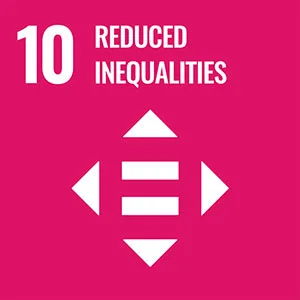MSc Biostatistics and Data Science
The master's programme in Biostatistics and Data Science offers a unique combination of Biostatistics and Data Science. Students with backgrounds in Mathematics, Statistics, Computer Science, or related disciplines, are provided with the skills to solve problems in Biology, Medicine, and Public Health. The programme is offered jointly by KTH, Karolinska Institutet, and Stockholm University through the university alliance Stockholm Trio.

Biostatistics and Data Science at KTH, Karolinska Institutet and Stockholm University
In this two-year master's programme, you will learn the key skills required to work as a biostatistician or data scientist. You will get training in statistics, computational science, and programming, along with the theoretical and practical education to apply these skills to challenges in biology, medicine, and public health. In addition, you will learn the analytic techniques used in data science to prepare you for the data-driven challenges of modern medical research and a career as a data scientist. During your two years in Stockholm, you will study a tailored selection of courses from three universities with prominent research in their respective fields: Karolinska Institutet, KTH Royal Institute of Technology, and Stockholm University.
The first year begins with mathematically rigorous courses in statistics, exploring probability theory and statistical inference, and statistical modelling with a focus on modelling biomedical data. Additionally, you will get an introduction to computer intensive methods in mathematical statistics. These courses give you the basis for elective courses in machine learning and statistical learning that you will take in the second half of the year. You will also get an introduction to human biology, physiology, and genetics, and an introduction to medical research, emphasising its multidisciplinary nature and the role of biostatistics and data science in medical research and society.
The second year introduces topics in biostatistical science that complicate or extend the concepts and methods covered in previous courses, for example, incomplete or missing data, correlated or clustered data, and Bayesian inference. Courses in the second year build upon previous courses by giving an overview of methods for designing and analysing medical research studies in three areas: pre-clinical studies and animal research, clinical trials, and observational studies.
In the final semester, you will conduct a degree project, which involves completing a research project in an academic setting, government authority, or industrial environment and can potentially include studies abroad.
Courses in the programme
The programme courses cover topics such as biostatistics, data science, machine leaning, artificial intelligence, epidemiology, programming, statistical methods, mathematics, medical science.
Future and career
The combination of biostatistics and data science gives graduates an excellent profile for challenging and rewarding careers in industry (for example, biomedical, healthcare, insurance, and pharmaceutical sectors), government (for example, public health agencies) and academia. There is a shortage of trained biostatisticians and data science professionals, both in Sweden and internationally. After graduating from this programme, you will find excellent opportunities for doctoral studies, both in developing new biostatistics and data science methods and applying your knowledge and skills in biostatistics and data science to address research topics in biology, medicine, and public health.
Sustainable Development
Graduates from KTH have the knowledge and tools for moving society in a more sustainable direction, as sustainable development is an integral part of all programmes. The three key sustainable development goals addressed by the master's programme in Biostatistics and Data Science are Goals 3, 4, and 10: Good Health and Well-being, Quality Education, and Reduced Inequalities.



Goal 3 is central to the programme, as it trains experts who support medical research and life sciences, ultimately advancing global health. Through a Stockholm Trio-framed collaboration—uniting the strengths of KI, KTH, and SU—Goal 4 is advanced via inclusive, high-quality education of international calibre. Lastly, Goal 10 is supported by promoting data-driven research that informs equitable and evidence-based policymaking.
During their training in the programme, students develop strong analytical and computational skills, with a focus on real-world challenges in health and life sciences. They learn to work across disciplines and use data responsibly to support evidence-based solutions. After graduation, they apply these skills in roles such as biostatisticians or data scientists, contributing to improved public health, reduced inequalities, and more sustainable, data-driven decision-making.
Faculty and research
All compulsory KI courses in the programme are organised by the
Department of Medical Epidemiology and Biostatistics (MEB)
. KI is a medical university; biostatistics faculty at MEB conduct research in development of statistical methods but there is a heavy focus on applications in biology and medicine. The courses at all three universities cover theory, methods, and applications but the KI courses have a greater focus on applications. The course directors and primary teachers of the KI courses are all biostatisticians, but you will also hear from guest lecturers from other areas of medical science (e.g., clinicians, epidemiologists, geneticists) and from KI departments other than MEB.
At KTH, courses in the programme are taught by teachers and active researchers with expertise in mathematical statistics, machine learning, and data science, mainly from the Departments of Mathematics and Intelligent Systems. Students in the programme often take courses alongside those in KTH’s master’s programmes in Applied and Computational Mathematics and Machine Learning, creating a stimulating environment with peers from complementary fields.
The courses (both compulsory and elective) at SU are given by active researchers in the Department of Mathematics at SU. The research speciality of each teacher/course varies but always include methodology of statistics, machine learning and/or probability, often with applications in biological/medical data. Most courses at SU also have students from other master’s programmes in Mathematical Statistics, Computational Mathematics or Mathematics.
The three universities contributing to this programme are partners in a research and education through the
Stockholm Trio
university alliance and collaborate on research infrastructure such as the
Science for Life Laboratory
.


